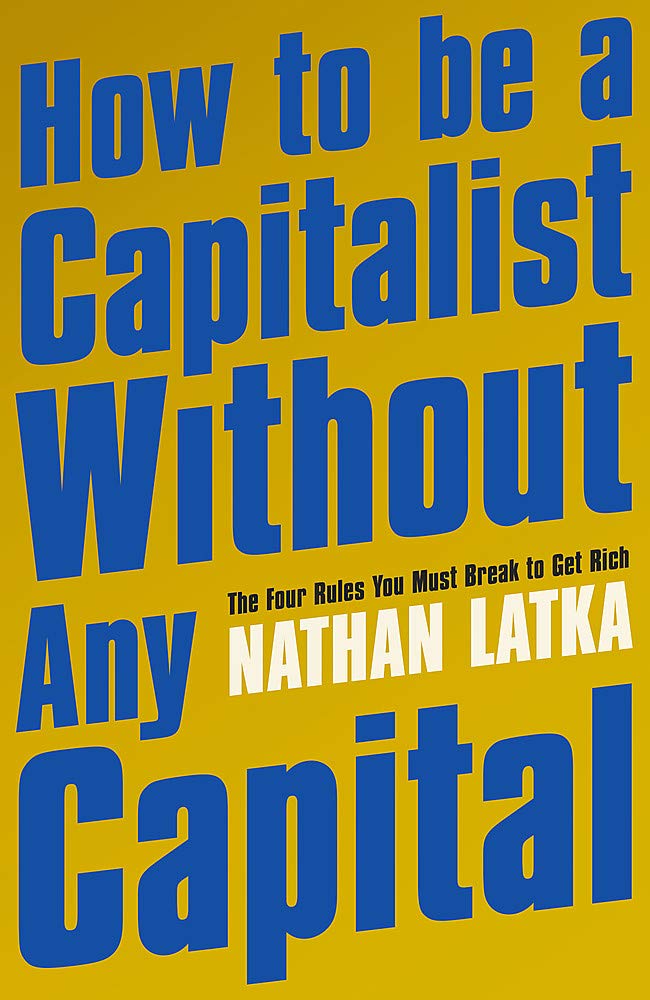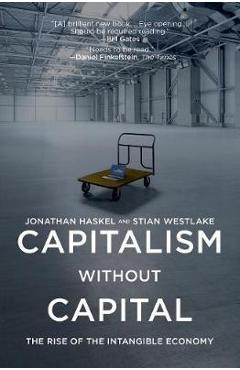Capitalism Without Capital: The Rise of the Intangible Economy, Hardcover/Jonathan Haskel

Detalii Capitalism Without Capital: The Rise
elefant.ro
252.99 Lei
Foreign Books
Princeton University Press
Capitalism Without Capital: The Rise - Disponibil la elefant.ro
Pe YEO găsești Capitalism Without Capital: The Rise de la Princeton University Press, în categoria Foreign Books.
Indiferent de nevoile tale, Capitalism Without Capital: The Rise of the Intangible Economy, Hardcover/Jonathan Haskel din categoria Foreign Books îți poate aduce un echilibru perfect între calitate și preț, cu avantaje practice și moderne.
Preț: 252.99 Lei
Caracteristicile produsului Capitalism Without Capital: The Rise
- Brand: Princeton University Press
- Categoria: Foreign Books
- Magazin: elefant.ro
- Ultima actualizare: 27-10-2025 01:24:43
Comandă Capitalism Without Capital: The Rise Online, Simplu și Rapid
Prin intermediul platformei YEO, poți comanda Capitalism Without Capital: The Rise de la elefant.ro rapid și în siguranță. Bucură-te de o experiență de cumpărături online optimizată și descoperă cele mai bune oferte actualizate constant.
Descriere magazin:
The first comprehensive account of the growing dominance of the intangible economy Early in the twenty-first century, a quiet revolution occurred. For the first time, the major developed economies began to invest more in intangible assets, like design, branding, R&D, or software, than in tangible assets, like machinery, buildings, and computers. For all sorts of businesses, from tech firms and pharma companies to coffee shops and gyms, the ability to deploy assets that one can neither see nor touch is increasingly the main source of long-term success. But this is not just a familiar story of the so-called new economy. Capitalism without Capital shows that the growing importance of intangible assets has also played a role in some of the big economic changes of the last decade. The rise of intangible investment is, Jonathan Haskel and Stian Westlake argue, an underappreciated cause of phenomena from economic inequality to stagnating productivity. Haskel and Westlake bring together a decade of research on how to measure intangible investment and its impact on national accounts, showing the amount different countries invest in intangibles, how this has changed over time, and the latest thinking on how to assess this. They explore the unusual economic characteristics of intangible investment, and discuss how these features make an intangible-rich economy fundamentally different from one based on tangibles. Capitalism without Capital concludes by presenting three possible scenarios for what the future of an intangible world might be like, and by outlining how managers, investors, and policymakers can exploit the characteristics of an intangible age to grow their businesses, portfolios, and economies.

Produse asemănătoare

Capitalism Without Capital: The Rise of the Intangible Economy, Hardcover/Jonathan Haskel
![]() elefant.ro
elefant.ro
Actualizat in 27/10/2025
252.99 Lei

How to Be a Capitalist Without Any Capital. The Four Rules You Must Break to Get Rich, Paperback/Nathan Latka
![]() elefant.ro
elefant.ro
Actualizat in 27/10/2025
54.26 Lei

How to be a capitalist without any capital | Nathan Latka
![]() carturesti.ro
carturesti.ro
Actualizat in 27/10/2025
60 Lei
Produse marca Princeton University Press

Rocks and Rock Formations: A Key to Identification, Paperback/Jürg Meyer
![]() elefant.ro
elefant.ro
Actualizat in 28/10/2025
122.99 Lei

The World Atlas of Trees and Forests. Exploring Earth\'s Forest Ecosystems, Hardback/Jerome Chave
![]() elefant.ro
elefant.ro
Actualizat in 28/10/2025
324.99 Lei

Irresistible Fairy Tale. The Cultural and Social History of a Genre, Paperback/Jack Zipes
![]() elefant.ro
elefant.ro
Actualizat in 28/10/2025
144.99 Lei

Field Guide to Coastal Wildflowers of Britain, Ireland and Northwest Europe, Paperback/Andrew Cleave
![]() elefant.ro
elefant.ro
Actualizat in 28/10/2025
144.99 Lei

Macroeconomics and Financial Crises. Bound Together by Information Dynamics, Hardback/Guillermo L. Ordonez
![]() elefant.ro
elefant.ro
Actualizat in 28/10/2025
216.99 Lei

Flying Snakes and Griffin Claws. And Other Classical Myths, Historical Oddities, and Scientific Curiosities, Paperback/Adrienne Mayor
![]() elefant.ro
elefant.ro
Actualizat in 28/10/2025
122.99 Lei

